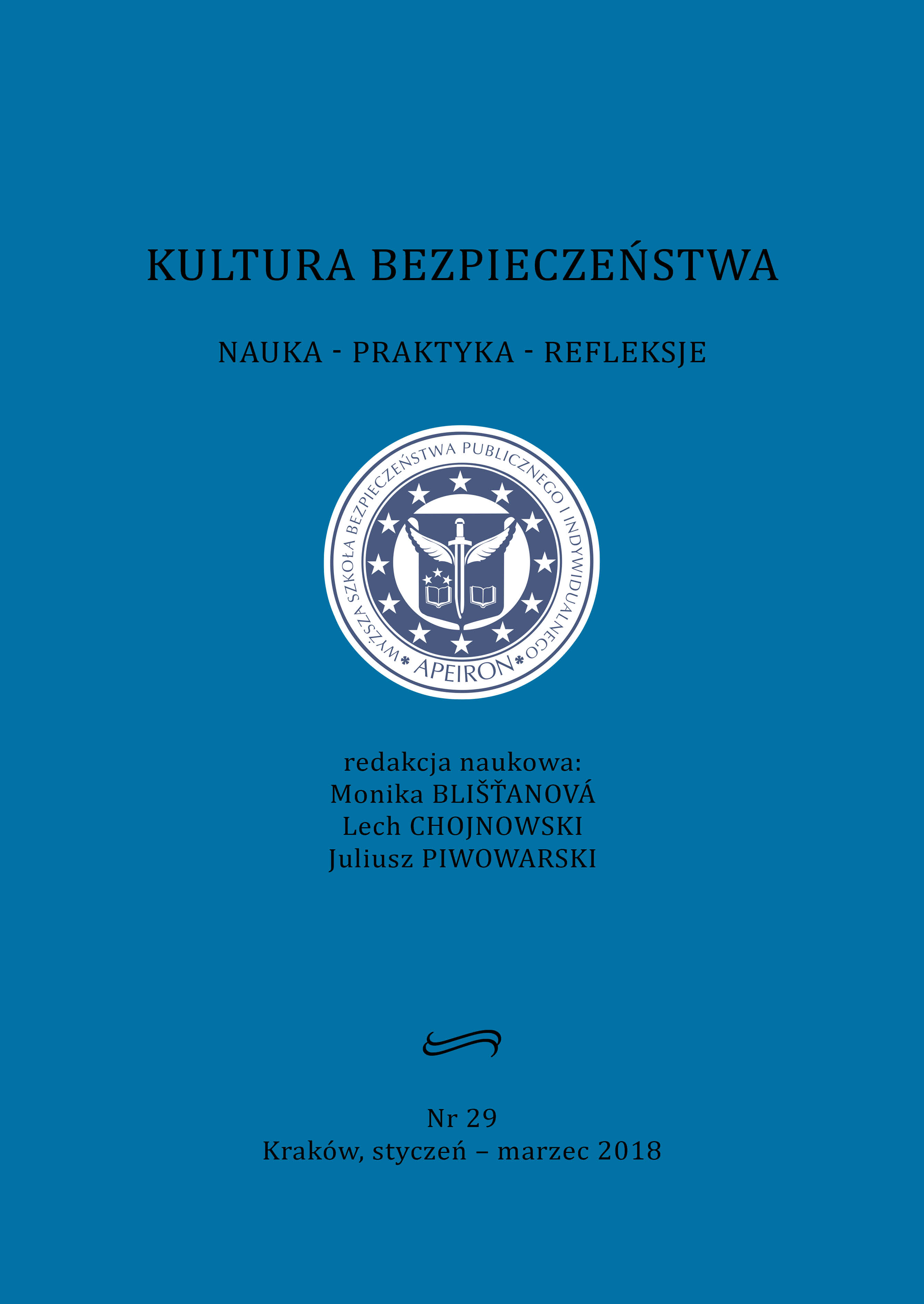Prawne podstawy współdziałania służb i instytucji zwalczających przestępczość zorganizowaną w Polsce
Legal Basis for Cooperation of Institutions Combating Organised Crime
Author(s): Wiesław MądrzejowskiSubject(s): Criminal Law, Security and defense
Published by: Wyższa Szkoła Bezpieczeństwa Publicznego i Indywidualnego “Apeiron” w Krakowie
Keywords: organized crime; cooperation; information exchange; benefits; operational rights; coordination; controls; services; rights;
Summary/Abstract: Over recent years several legal acts concerning combating organised crime and terrorism have been passed in Poland. The most important of them relate to operational intelligence activities conducted by all entitled agencies and institutions. The new terrorism prevention and combating act should also be mentioned in this context. The scope of operational intelligence (including surveillance and undercover operations) was significantly extended especially with regards to fighting organised crime. Also considerable changes went into effect concerning Polish counter-terrorism system. New anti-terrorism legislation rearranged the system of institutions responsible for preventing and fighting terrorism. Main players’ areas of responsibility were precisely formulated and institutions responsible for coordination and supervision of all counter-terrorism activities designated. Hitherto there was no such institution designated with regards to system for combating organised crime. In particular Polish police, while officially responsible for fighting organised crime, have no authority to supervise or coordinate other agencies’ activities aimed at fighting organised crime. The cooperation between Polish police and other agencies and institutions combating organised crime is based on numerous bilateral and multilateral agreements of various scopes, which may include: – rules of information exchange, – creating joint operational investigative teams, – technical cooperation, – coordination of international cooperation, – mutual logistic assistance, – training of officers and employees. Such agreements can vary substantially from very detailed to general depending on cooperating institution. Considering foregoing experiences in using of current counter-terrorism legislation, development of comprehensive regulation concerning cooperation of law enforcement agencies and institutions, involved in combating organised crime, seems to be necessary.
Journal: Kultura Bezpieczeństwa. Nauka-Praktyka-Refleksje
- Issue Year: 2018
- Issue No: 29
- Page Range: 107-140
- Page Count: 34
- Language: Polish

